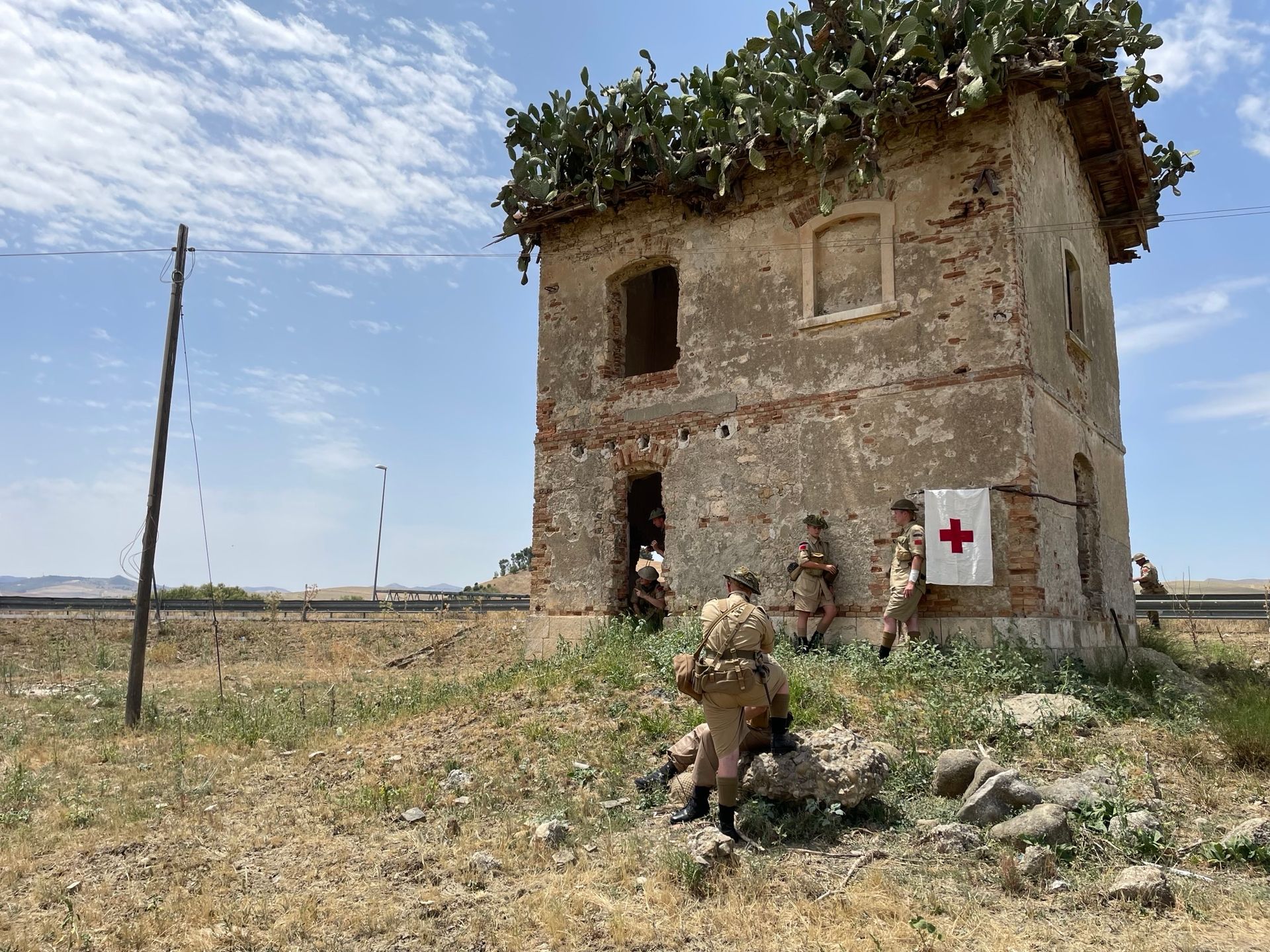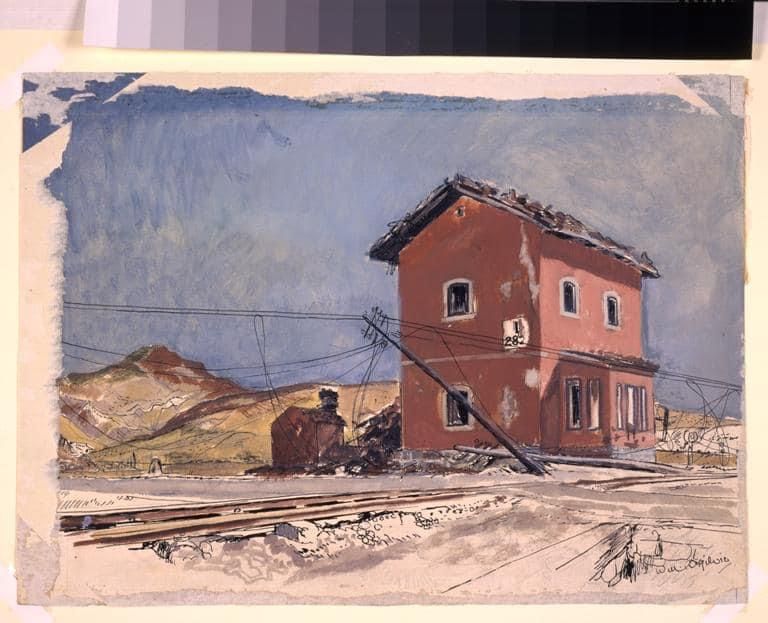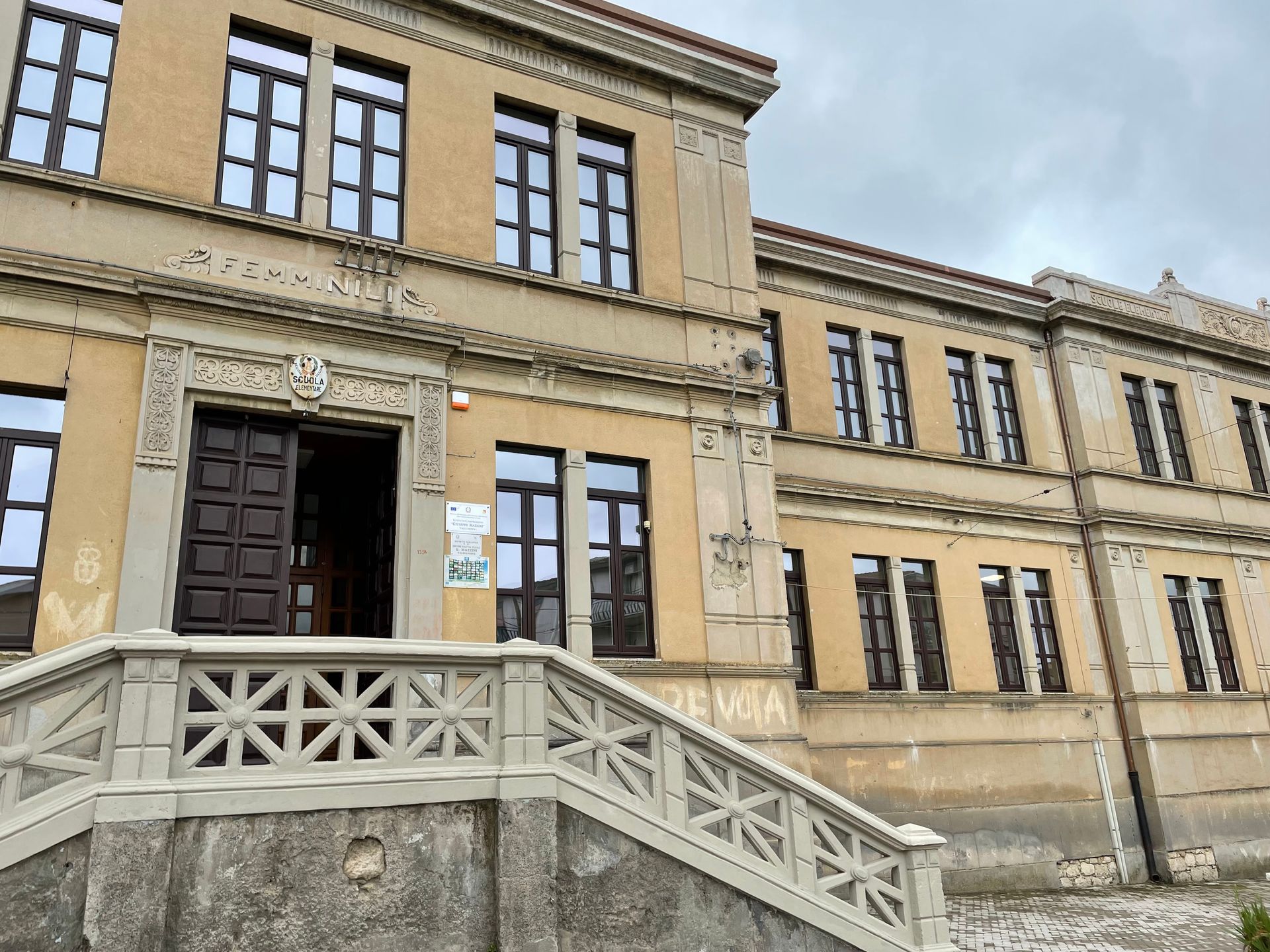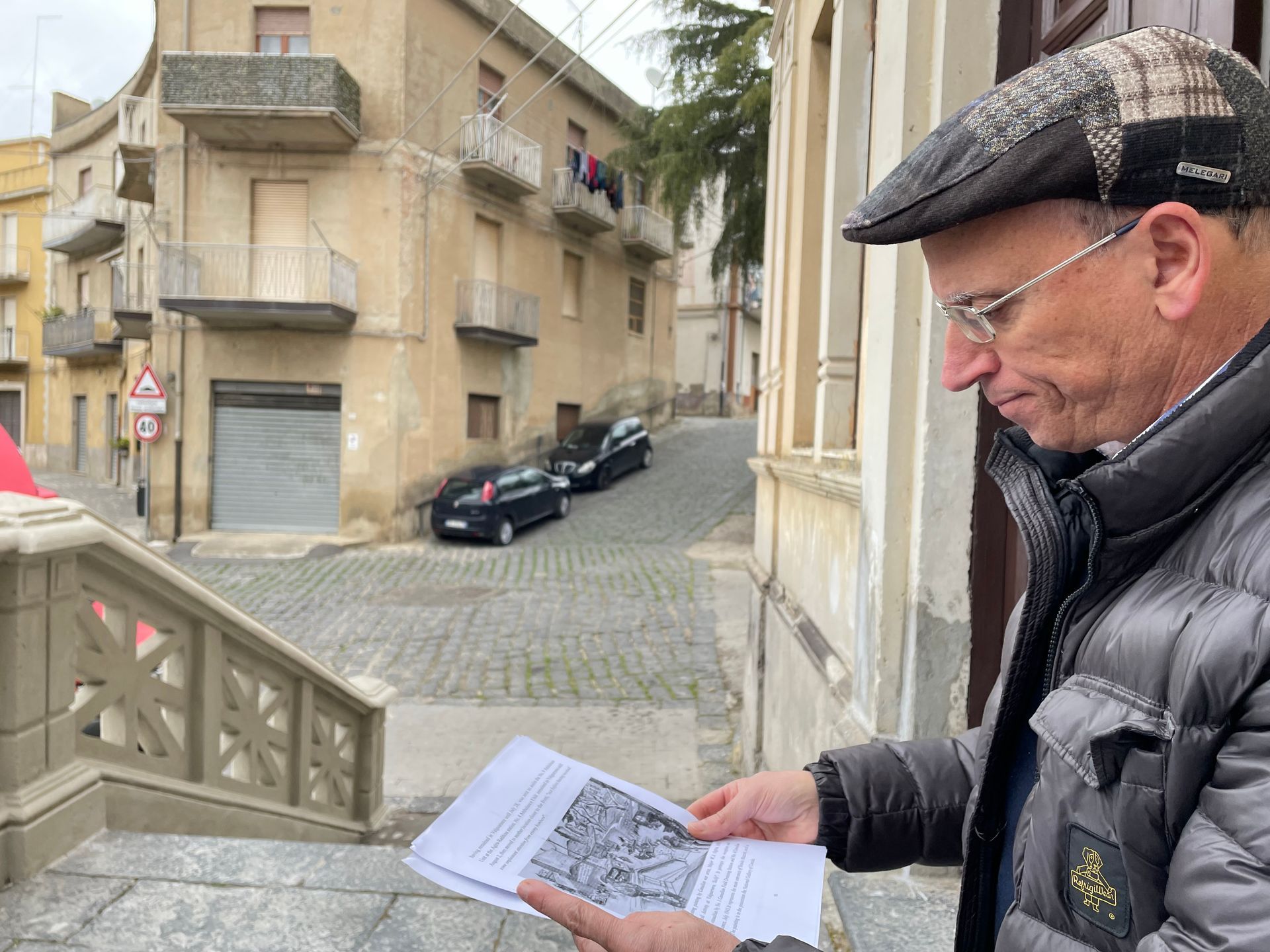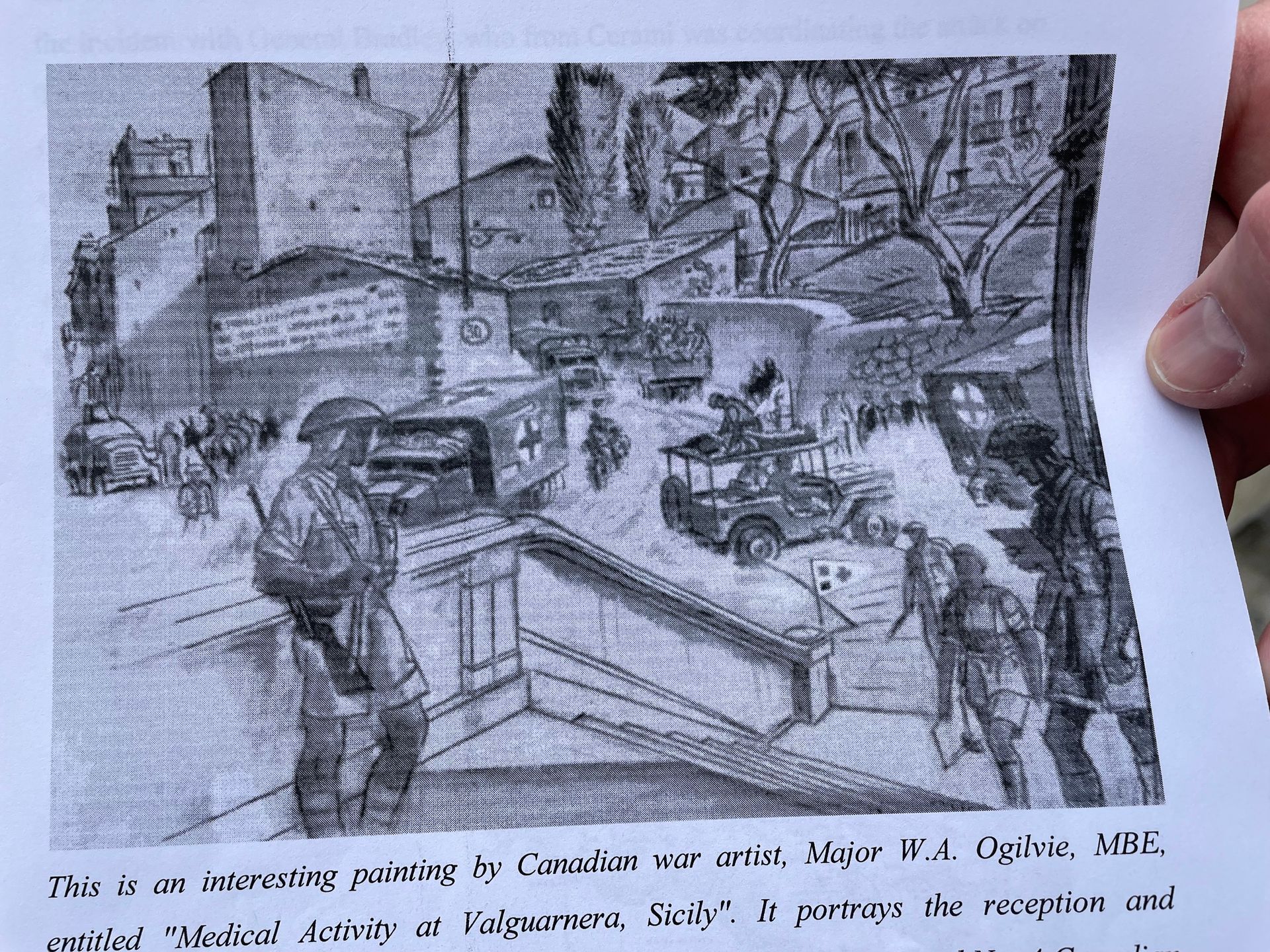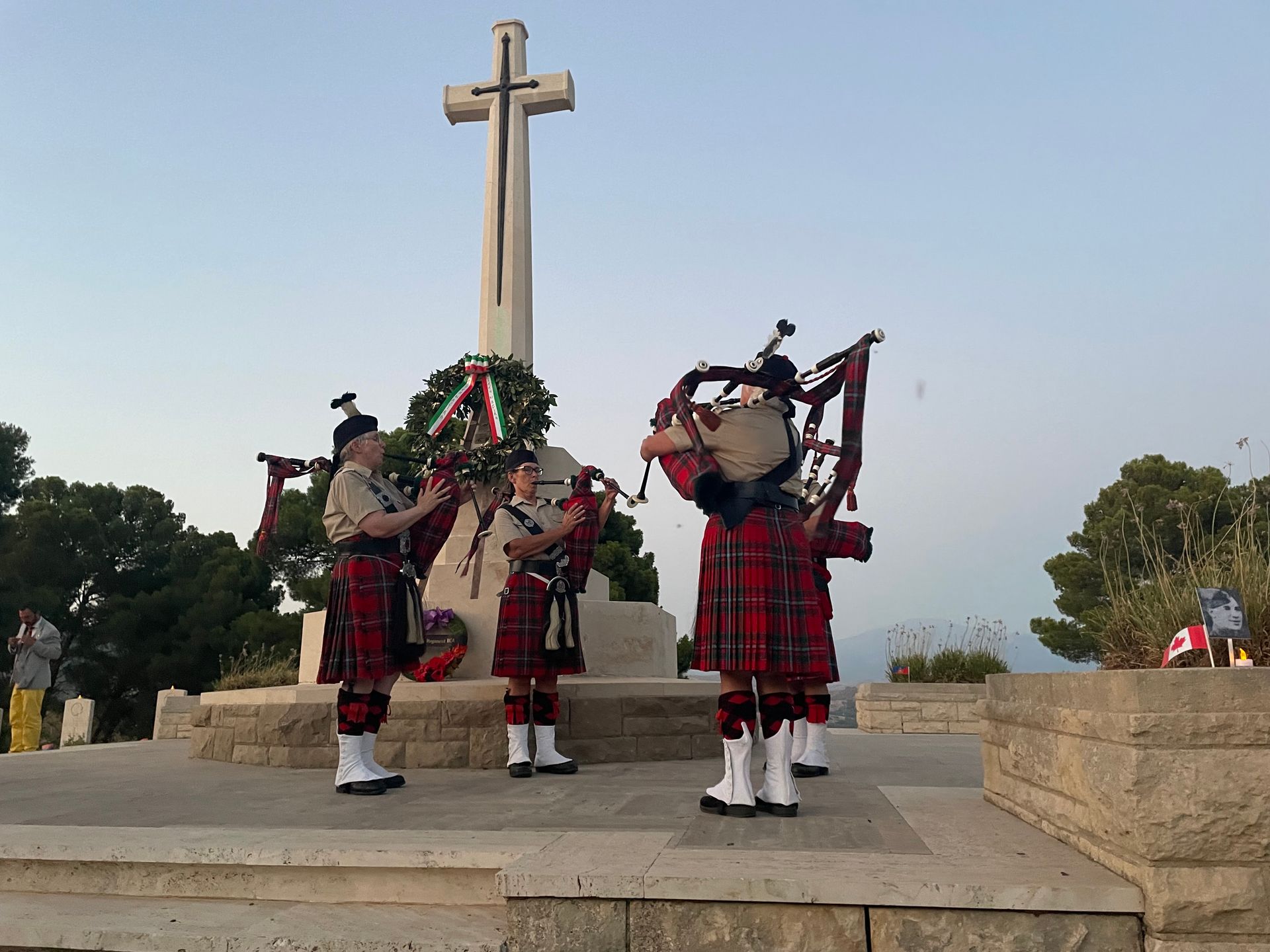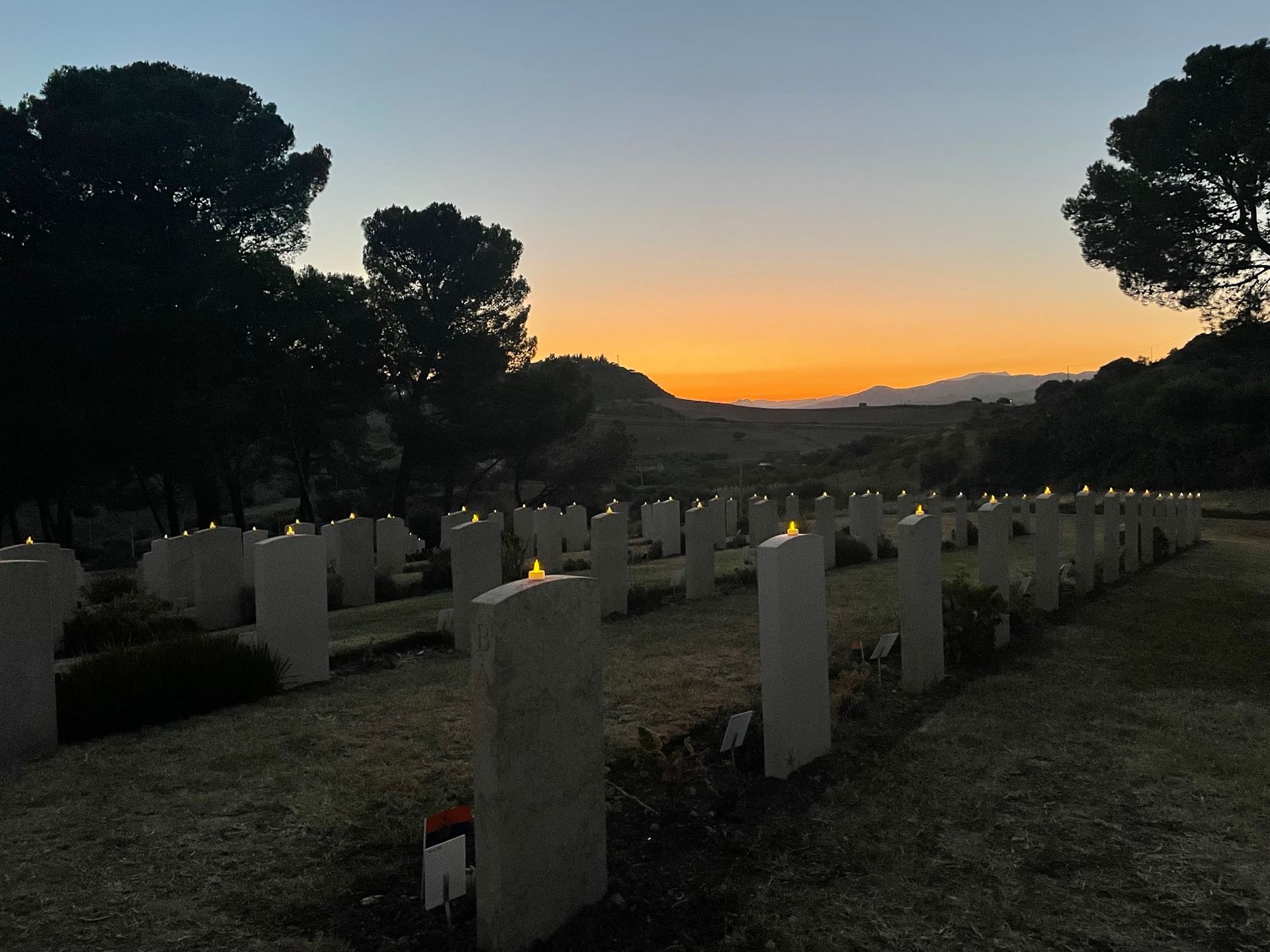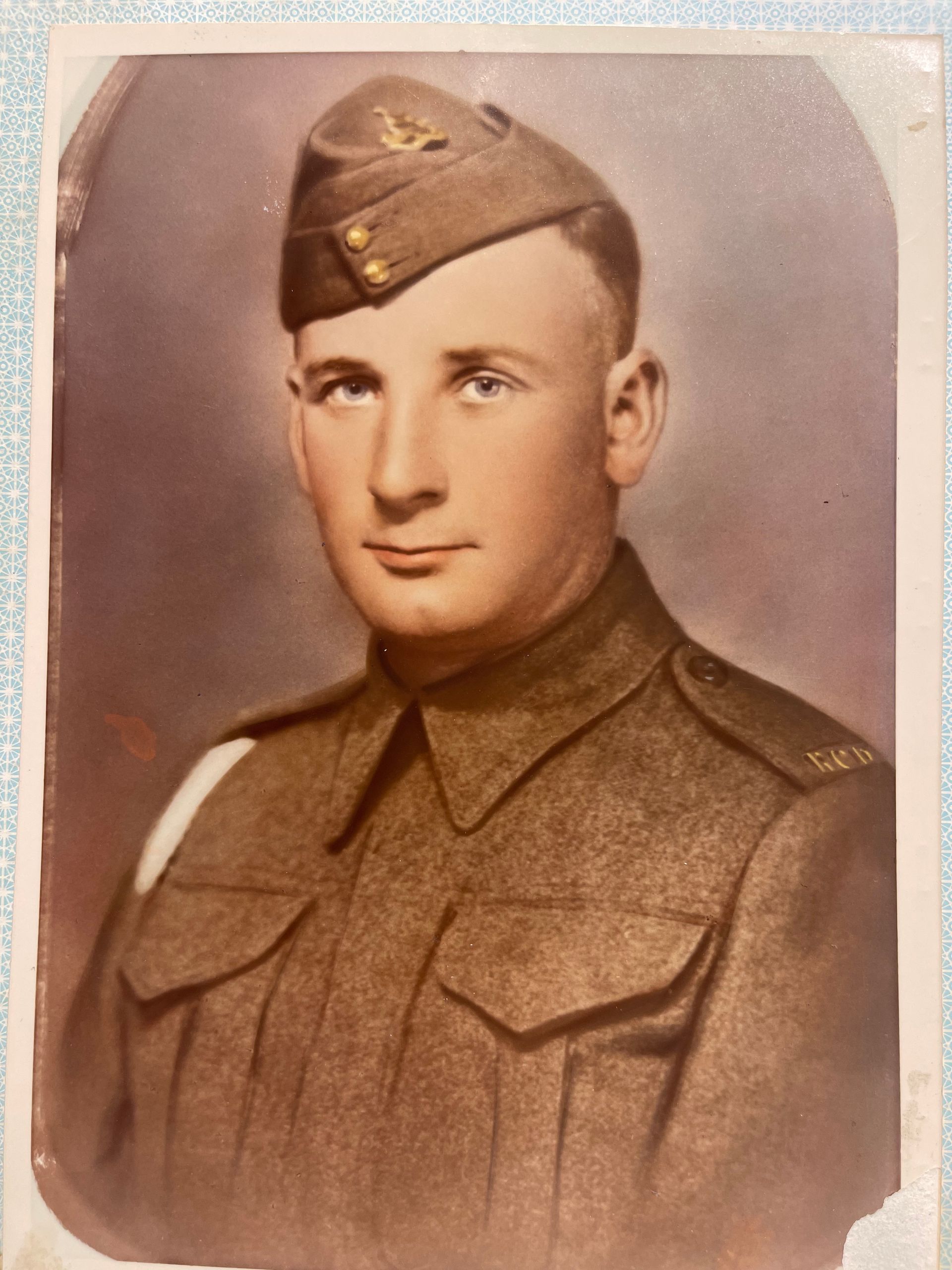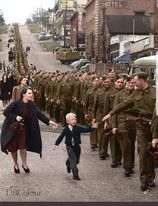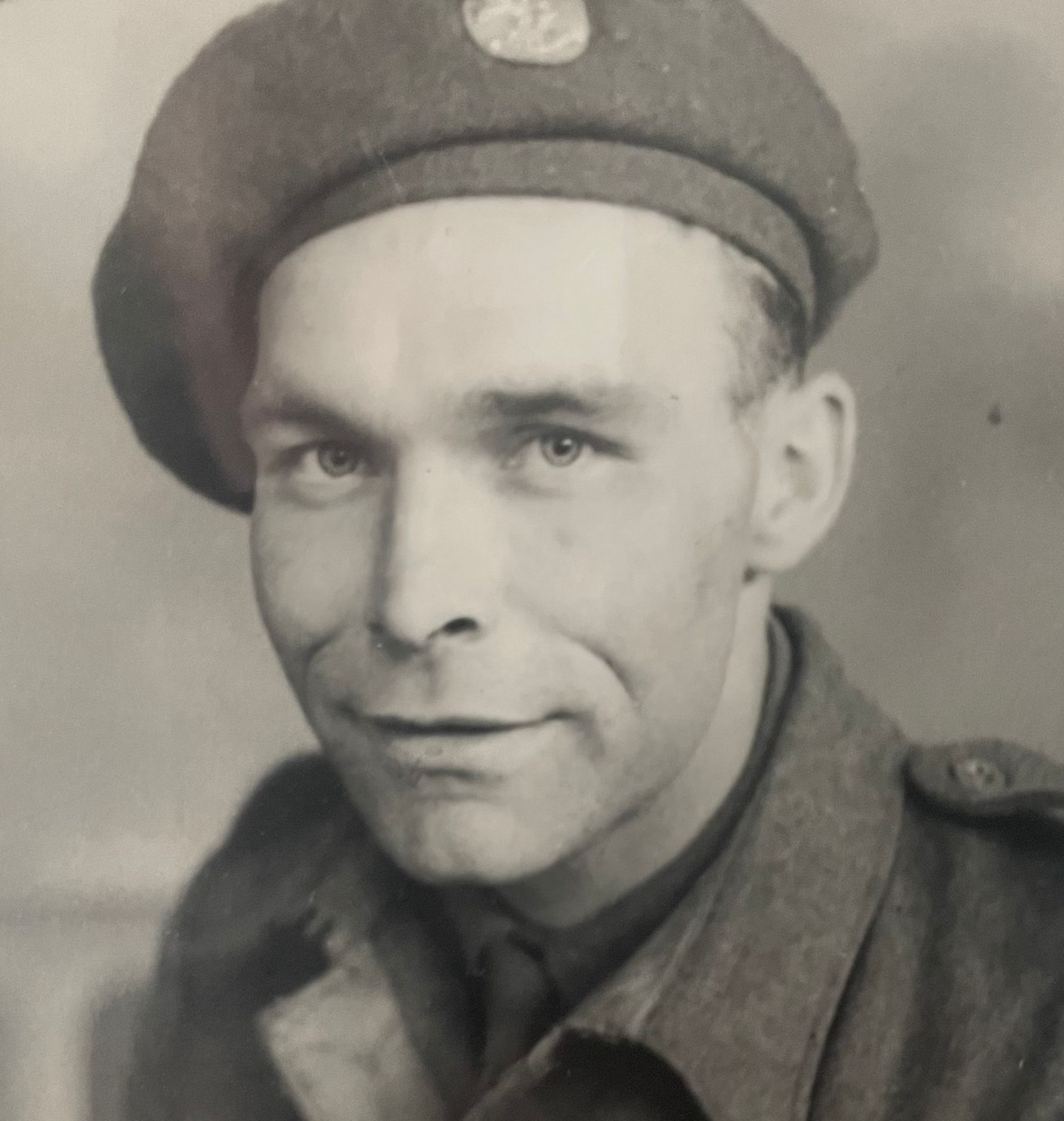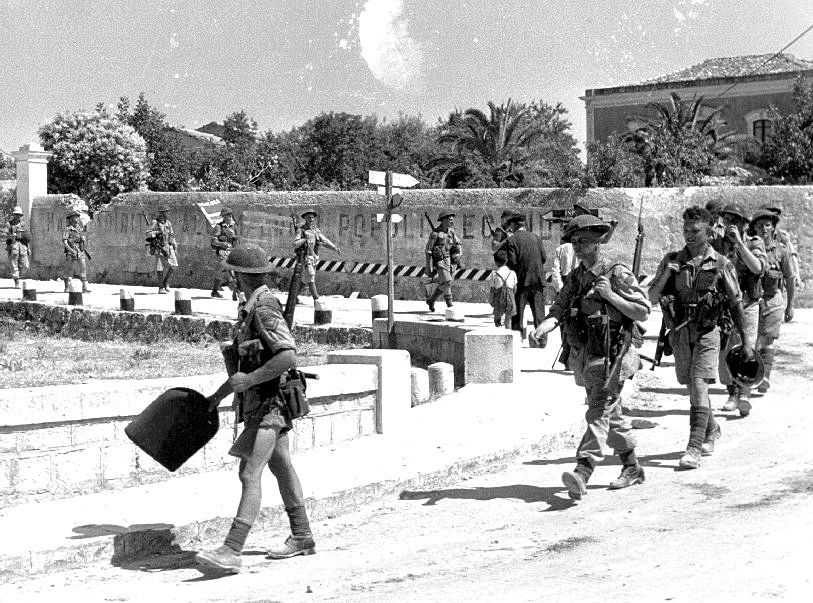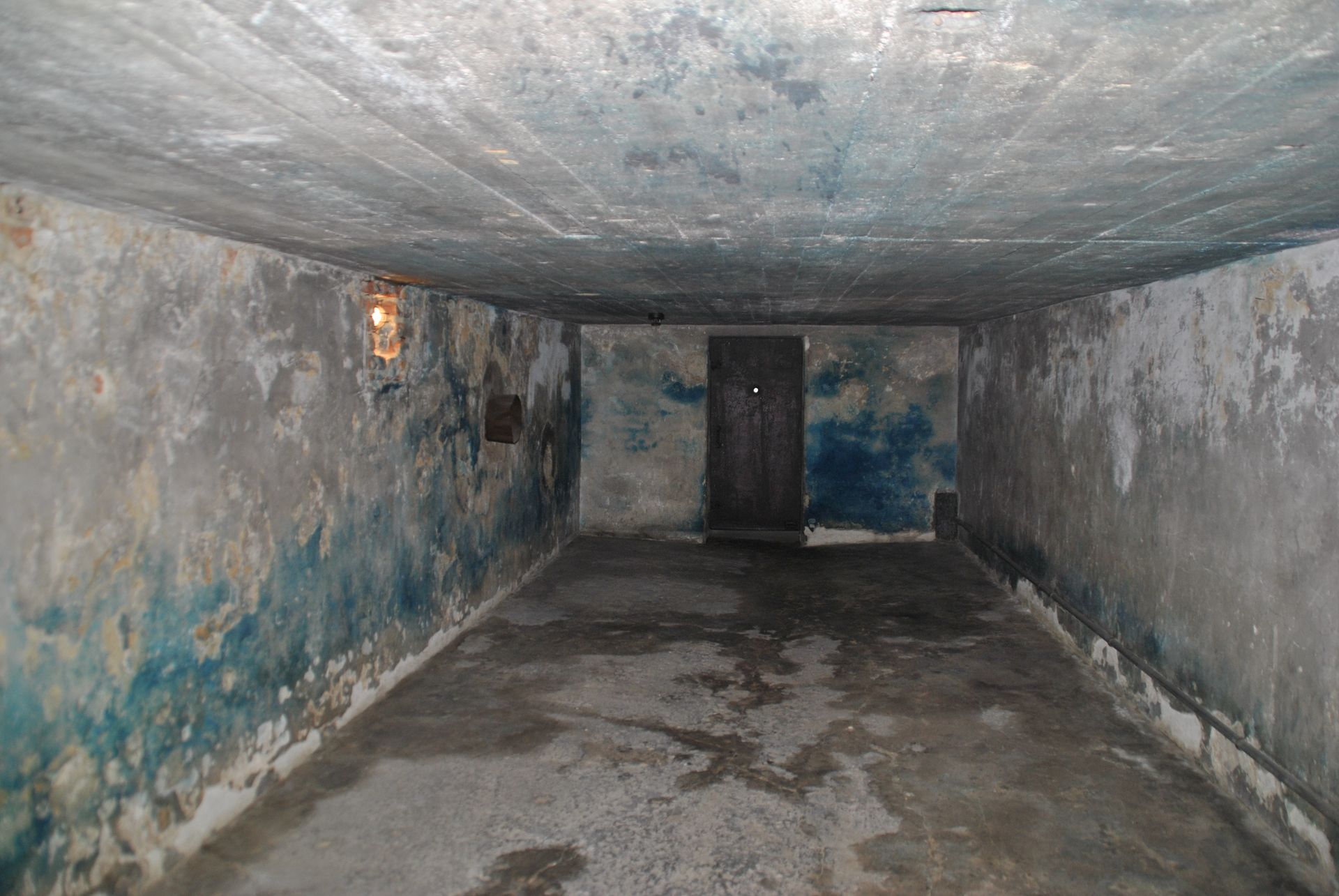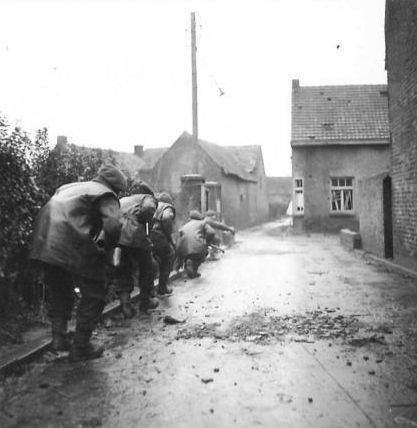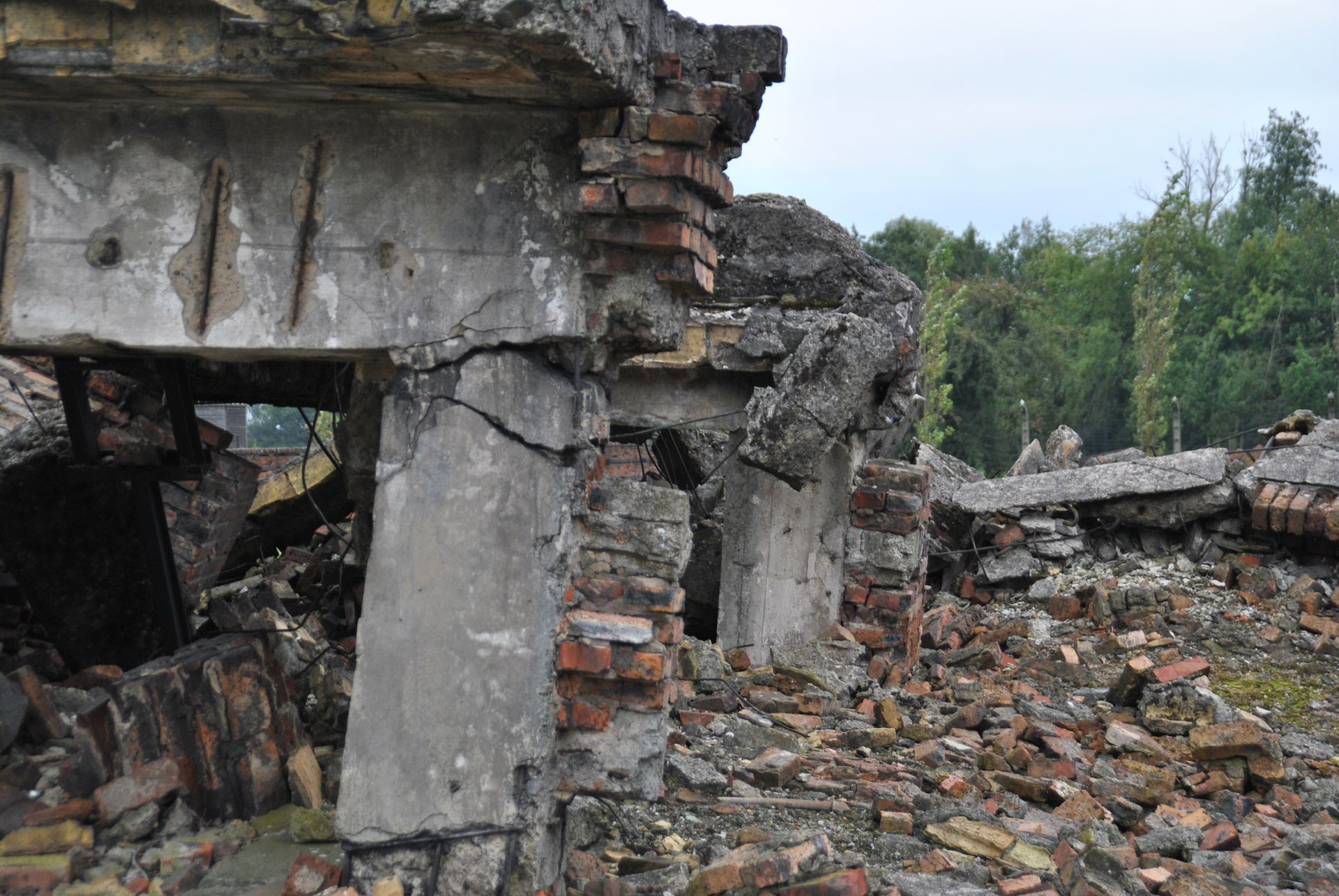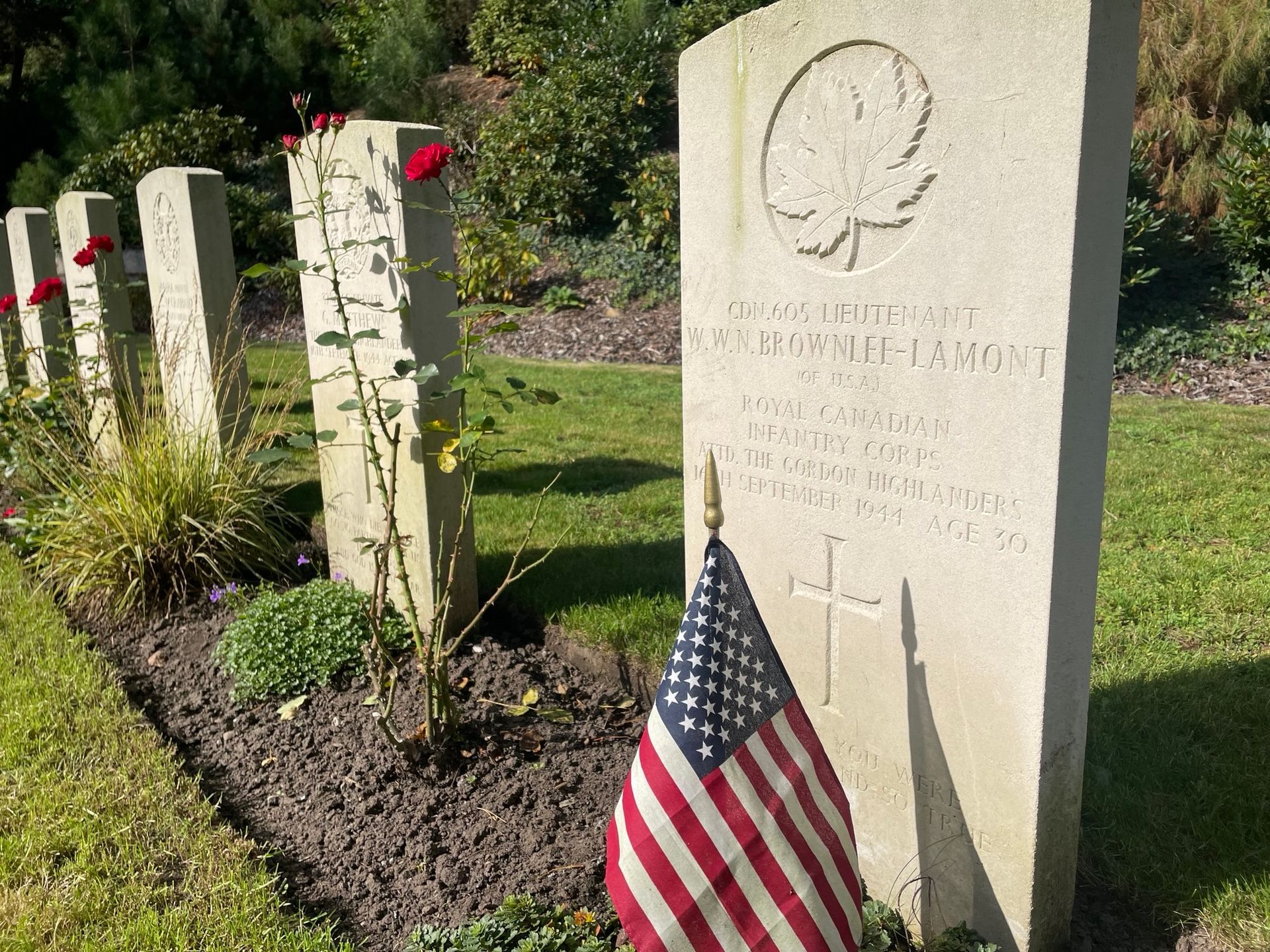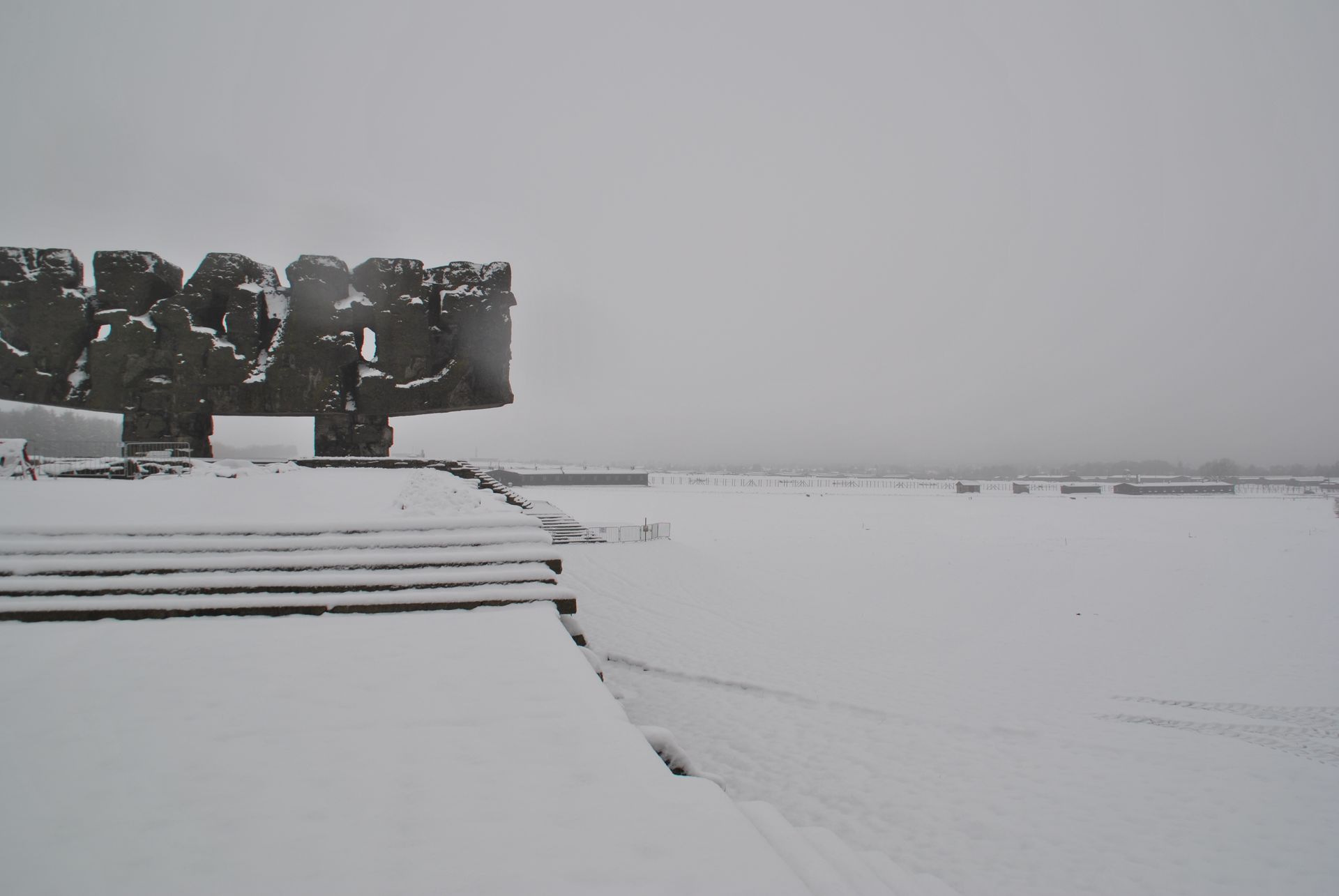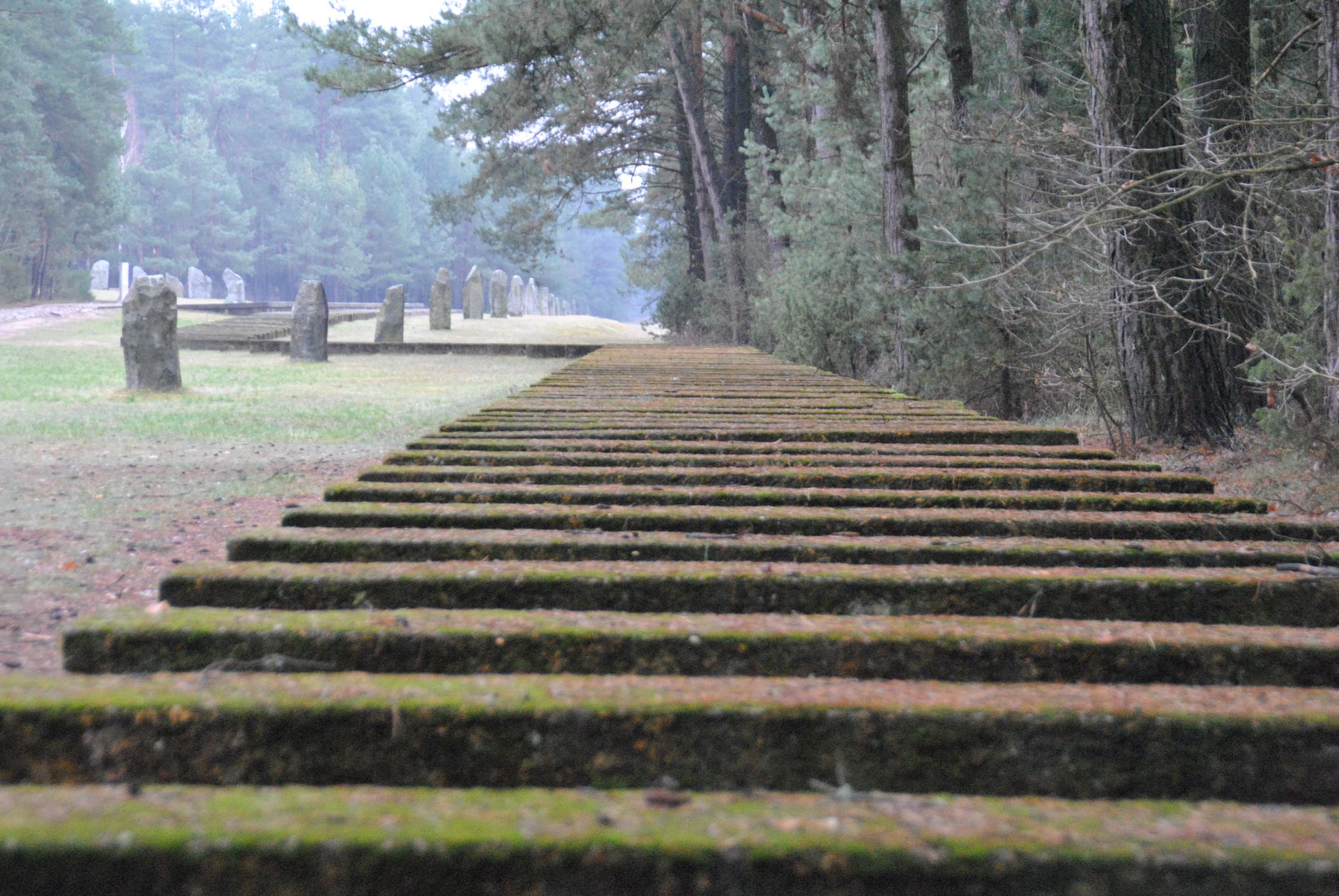The story of John William Stephens
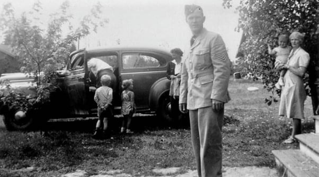
By Jimmy Hilgen
A family photo with a man in uniform and his family around him. The little girl standing at the back door from the car is Barbara Stephens and next to her is her older brother Edward and her uncle. She seems to be talking to her mother. Barbara´s grandmother is standing with her younger brother Ken on her arms. The man in uniform is Barbara’s father, at that time still Sergeant John William Stephens serving with the Royal Canadian Army Medical Corps and on the right from him is his wife Voy. He says goodbye and will be brought to the train station in Brighton, Ontario where John will take the train back to his military barracks. Little did they know it was the very last time they ever saw their dad again….
John served in the reserve formation of the Royal Canadian Army Medical Corps with No 16 Field Ambulance from July 1940 until 2 June 1941. The following day he was called up for active duty and he officially enlisted on 3 June 1941 in Toronto.
John stayed for two years in Debert, Nova Scotia and when he heard he had to embark for England he said he couldn’t and wouldn’t go before he could call home and “memorize” the voices of his beloved wife Voy and their four children; John, Edward, Barbara and Kenneth. There was a time difference between Debert and Toronto and the four children had to be awakened by their mother to speak to their daddy. Then it was time for John to embark on the ship which should bring him across the dangerous Atlantic towards England.
John left Halifax on 26 September 1942 and arrived at the port of Liverpool on 7 October 1942.
In the meanwhile, John was promoted to Lieutenant at the end of May 1943, so a couple of weeks before he embarked for Sicily on June 16, 1943. John was a Lieutenant in the 5th Field Ambulance of the Royal Canadian Army Medical Corps. John’s cousin was on the same ship and later told his wife that John was leading the exercises on board. The young lads liked him very much because he exercised too and never let the boys do anything he wouldn’t do either. John was considered an “oldy” by the younger men on board.
On board of the ship towards the Mediterranean John wrote four letters home (which his wife Voy got after she officially heard that he died) and because of the censor of the letters he couldn’t tell everything. Below some parts of his letters:
“News is scarce and our routine is pretty much the same every day. Zero day is approaching and we are all set for it. You can depend on it, love, that we will give a good account of ourselves. Don’t worry, love, will you. I will be o.k.
My whereabouts are security, so even if you surmise, don’t discuss it with anyone, for a while anyway.
Recess for now, tea-time, and us soldiers must have our tea, so will be back shortly, a big kiss for you while I am away. Always keep in mind that my greatest aim in life right now is to get this over with and get home to you, so you can rest assured I will look after John W. Somehow I feel quite detached from all this. Physically I am here, but nothing ruffles me very much and I seem to get things done much better. My thoughts are with you always. I often sit down and conjecture just what you might be doing and all the little trials and tribulations of the children. The ocean is a little choppy right now.”
“We passed some land last night and it was the shoreline of Africa, just where I do not know. Our convoy is well protected and several subs are sorry they attempted to interfere. Our score is 3-0.
I am quite disillusioned about the blue of the Mediterranean it is quite a different shade than the other water we passed through but still not quite what I expected.”
“Our reason for being here of course you will read about and will probably have heard about over the air before this reaches you. Please don’t worry about it love, as I will be quite safe. I am glad this time has come because it means I will get home to you that much sooner.”
“We will quite likely be in action soon. I don’t want you to worry about it as I will be perfectly safe and only too glad to be doing something to hurry this crazy business along to a quick conclusion. Let’s hope it’s over soon love, so we can resume where we left off or have you got so used to not having a grouchy husband under foot...and are quite happy as you are.”
“Pleasant dreams and may I be in them. Keep smiling”
Then came the 10th of July 1943 when John landed on the beaches south of Pachino. He was with the 5th Field Ambulance during the Sicilian Campaign and went through towns with names he probably never heard of before: Ispica, Ragusa, Grammichele, Caltagirone, Valguarnera and then Leonforte on 21 July 1943.
All regiments in the Canadian Army had their own war diaries where a day to day description was given about what happened. This went from logistical problems to promotions to heavy battles and recommendations of soldiers. On 21 July 1943 John was mention in the war diary of the Loyal Edmonton Regiment:
“At 1600 hours, as the Seaforths deployed to lead the attack, the Edmontons closed up to follow through. Unfortunately a salvo of the preliminary shoot (friendly fire) fell on Colonel Hoffmeister’s (Seaforth) Orders-Group, while it was tying in the last details of the assault. War Diary 5th F.A. – “Lieutenant J. W. Stephens of B Company was wounded while attending an O-Group with the Seaforth Highlanders of Canada.”
John’s son John jr spoke to one of his father’s commanding officers, Major Maclean, in 1976 and he told him the following story regarding his father’s death.
Major Maclean of the RCAMC:
Major Maclean reported a different incident to me in 1976. Because of his direct contact with my father, I feel this more accurately describes what really happened to John and has convinced me that he was not in fact at the O-Group (orders group) meeting. Furthermore because both events happened at the same time, I can understand how there might be confusion behind the lines as to where people were injured.
Major Mclean - “We ran into stiff resistance from German Panzer troops who had retreated to a strong position in Leonforte, which was on a rocky prominence at the north end of a valley. At the southern end of the valley was Valguarnera, where the section of the 5th Field Ambulance, of which I was in charge (and your father was attached), set up an evacuation centre for wounded coming back down the valley. At one point the action was very heavy and our contact with the Edmonton’s Regimental Aid Post was cut off. Your father and a driver went forward in a Jeep-Ambulance and were preparing to return with casualties.
Johnnie was evacuated to my Ambulance Post on his own Jeep-ambulance.
Naturally it was a great shock to see him wounded and near death, especially as I had been speaking to him just an hour before.
Johnnie was evacuated down the line.”
The 5th Field Ambulance of the Royal Canadian Army Medical Corps also kept their war diary and the following was mentioned in it:
War Diary, 5th Field Ambulance – “Lieut. Stephens was evacuated to 4th Field Ambulance and 1st Field Dressing Station at Valguarnera and was operated on by doctors of the 1st Field Surgical Unit.”
Two other Lieutenants from the Royal Canadian Army Medical Corps recalled the following:
Lieutenant Cal Forward – “John was seriously injured in action at the front and was brought to our hospital for emergency treatment. He insisted he would be all right and that some others should undergo treatment first. That wish was denied and he received priority treatment.”
Lieutenant Bob Godtel – “He was not the only one hit at the time, but insisted that others around him be looked after first - quite unselfish about it, which was typical about him in all respects.”
“I arrived again at midnight. He was sleeping but woke up and spoke. I told him he would be OK and he said ‘sure, sure’. He was badly smashed up- compound fractures of the left thigh, left forearm and right hand smashed, head injury and lots of minor shrapnel wounds all over his body.”
The Padre of the Seaforth Highlanders describes the situation at the Regimental Aid Post:
“The jeeps roar up to the door, stretchers with their moaning load brought in and put on upturned boxes. Bloody bandages cut away, tunics and pants cut up, chloroform, tea, and plasma. Doctor works smoothly.
In the hospital at Valguarnera
The Canadian Hospital in Valguarnera is mentioned in the book: Canadian Medical Services (CMS)
July 19, 1943 , Sicily - “With the leading infantry now engaged in levering the enemy from positions covering the road running northwards from Valguarnera towards Leonforte, 4th Field Ambulance and 1st Field Dressing Station, with 1st Field Surgical Unit attached, opened conjointly an advanced dressing station and advanced surgical centre in Valguarnera. The building occupied was a large school that had been in use as an Italian hospital. It contained large stocks of medical supplies, including surgical instruments and dressings. But also inherited were some 60 enemy patients (civilian and military) whose condition, along with that of the building, was recorded as ‘indescribable’.”
It was here that John lost his life and where he was initially buried in a temporary burial site near the school building. Later he was reburied at Agira Canadian War Cemetery.
His wife and children received the terrible news that their beloved father and husband had died as a result of enemy actions. John’s wife never remarried and cared for her children until her death.
John’s daughter Barbara wrote some beautiful poems regarding the missing of her father:
Poems by Barbara Cooke:
Barbara, The Little Girl.
My father was killed,
Buried in land Sicilians tilled,
In the Second World War,
When I was four.
The same year I remember
My whooping cough sounded so bad,
But I have never remembered my Dad.
Mom told me he was so dear,
Story after story,
So each November 11th, I remember
His story and his glory.
Barbara, The Teenager.
By friendly fire, my mom was told.
He was killed by our own troops, not the others
“Our own” makes them belong to me and my brothers.
I don’t want them to be the ones to maim,
Because who in the hell can I blame.
Barbara, The Adult.
I must rethink...let this new death-story unfold,
Not by “friendly fire” as we have always been told,
His Jeep-ambulance, hit by a shell,
The cause, he died later, forever he fell.
It was war, “War is Hell”
----------------------------------------------------------------------------------------------------------------------------------------------------------
World War II in darkness July 10, 1943
In darkness, our father, Lieutenant John Stephens, of the Canadian Army Medical Corps,
Left his ship, walking through the water, with all the Canadian soldiers, towards their secret landing on the shores of Sicily...Operation Husky, World War ll.
July 21, 1943, he was killed and buried in Sicily. My mother never loved again.
World War II in darkness July 10, 1943
Assault vehicles, like garbage trucks
Discarded soldiers in deep water
To attack a Sicilian Beach at dawn.
Waves attacked Johns rifle.
In combat boots,
He marched toward shore.
The water fought his every step.
His children darted underwater,
This way and that,
Bare feet fluttering
The dog-paddle and the deadman’s float.
He faced bullets
So real that his worst nightmare paled
As the sun rose
And revealed the men and their secret invasion.
Seagulls screeched, but
His children’s laughter drowned the sound
As they ran on hot white sand
As if there was no tomorrow.
But tomorrow did come
And so did the dreaded telegram
Lieutenant John William Stephens
Has died of wounds.
In Canada, the Sicilian invasion
Was on the News-Of-The-World film clip
At the neighbourhood show for
Johns widow to see for 35 cents.
His fatherless children kept playing
But their innocence ended.
He is buried in Sicily
Under the same sky as his children.
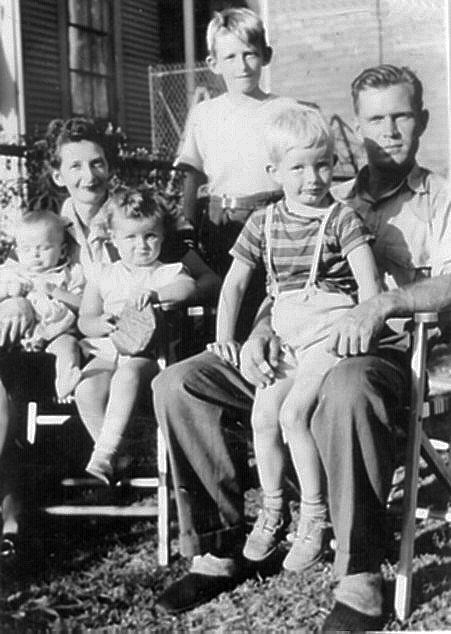
By Jimmy Hilgen - This story was made with help from the Stephens family who approved it before release.
Read about our journeys in our blogs
This is our Explore Diary











